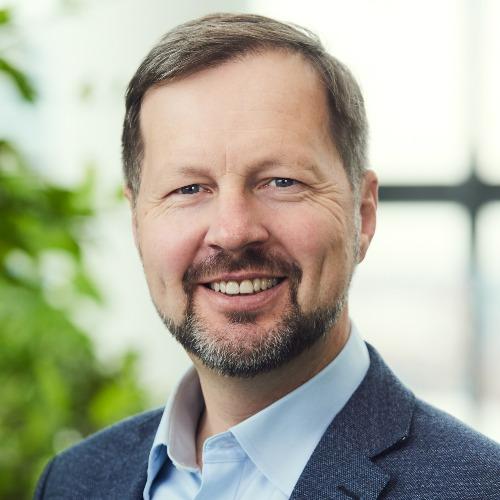In the first half of 2024, with 284 transactions, TMT was by far the most active sector for M&A transactions in Germany, followed by 216 transactions in the industrial manufacturing sector. However, consistent with the overall market, we are observing a decline in TMT deal volume, compared to the record H1 2023, with 376 deals, and H2 2023, with 314 deals. This is mostly driven by a decline in technology deals, which, with 248 deals, still constitute the lion’s share of all TMT deals. The telecom industry registered a slight increase in the number of transactions, and the media industry stayed almost unchanged compared to H2 2023; both at a comparably low level, though.
While the overall deal activity declined, we see early signs of an easing monetary policy in the US and a first interest rate reduction by the ECB, which allow for optimism that deal activity will pick up again soon. In fact, we saw a slight up-tick of completed TMT processes towards the end of the second quarter 2024. It seems that we have passed through the trough experienced by the market and have left it behind us.
Apart from the total number of deals, we also observe that the share of TMT deals concluded by PEs is increasing. While about 2/3rds of TMT deals were concluded by corporates until 2018, the PE share has steadily grown and exceeded 70% in the first two quarters of 2024. This PE dominance is mostly due to excessive weight of PE deals in software and, to a lesser extent, in IT services. Most other segments are seeing more corporate than PE investments.
Your expert for questions

Gerald Schustereder
Partner Deals, Technology, Media and Telecommunications (TMT) at PwC Germany
Tel: +49 89 5790-5541
Email
Technology
In light of the large number of technology transactions, we have taken a closer look at several sub-industries.
Software
The 207 software firm deals in H1 2024 are the most significant deal driver for TMT. Thanks to their favorable economics, software vendors are the most sought-after businesses for investors. Custom software development firms are also being transacted regularly. The largest software vendor deals include the banking software provider, Aareon, which sold for €3.9b to TPG and CDPQ as well as crisis management specialist, F24, sold to Altor by Hg. in-tech was a prominent custom software development transaction, which was ultimately acquired by the Indian IT services giant, Infosys.
IT services and data centers
When compared to software, non-software related IT services accounted for only a tenth of the concluded deals. However, we are noticing that the pipeline for IT services is being filled with new players, especially those whose focus is on cybersecurity and data analytics. We are anticipating more deals in those segments in the next quarters.
Similarly, some German data centers are in the transaction pipeline. However, due to the continued growth of cloud services and AI, an enormous amount of capital is dedicated to data center development projects, i.e., to the build-up of new data centers and extension of existing assets. For example, Mainova sold a 50% share of its Webhouse data center arm to Blackrock, in exchange for a significant investment in extending their data center capacity around the city of Frankfurt.
Semiconductors and hardware
Similarly, capital geared towards the semiconductor industry is mostly used for investments aimed at building up new onshore production facilities in Europe and the US, thereby decreasing the dependency on Asia for semiconductors. As a result, less capital is available for M&A. Furthermore, going forward, Asian companies buying out European semiconductor companies are unlikely to find regulatory approval. Consequently, we saw only around a dozen of smaller M&A transactions in that segment.
AI and data centers
While AI is attracting a lot of attention and growth investments from VCs and corporates at the moment, it will take a while before those companies become mature enough to feed into the M&A pipeline. Also, as mentioned, great capital volumes flow into the built-up of the infrastructure to enable AI in the first place. Especially datacenters are required to execute AI applications and provide the data the AI models are based on.
Media and Entertainment
As in previous years, due to the different industry dynamics found here, the media and entertainment M&A market in Germany cannot keep up with other regions. According to PwC’s Global Entertainment and Media Outlook 2024-2028, Germany’s entertainment and media compound annual market growth is ~2.2% from 2023-2028, seeing it lagging far behind the high single-digit growth rates in Asian countries as well as the US market, which is growing by ~4.3% annually. Apart from slow market growth in Germany, the mega cap players in online advertising and video streaming are primarily US based. The German industry structure is more focused on traditional media assets that undergo restructuring or consider market consolidation in response to shifting market dynamics. Still, asset disposals and acquisitions are performed to optimize the portfolio and build new segments that promise growth. These deals happened mostly on a small scale in the first half of 2024.
Apart from the aforementioned, larger deals are being discussed in the market. This includes the spin-off of the internet classified businesses of Axel Springer to its financial investors or bolt-on acquisitions for Bertelsmann’s music label, BMG.
Furthermore, ProSiebenSat.1, a large German broadcaster with significant internet business investments, has been confronted by some shareholders with break-up scenarios, but could successfully sidestep those for the time being. What was probably the most prominent deal known to the general public fell through again in H1 2024: The minority sale of marketing rights of the German football league DFL to financial investors was stopped once more due to resistance by the member football clubs.
Any questions?
Contact our experts
Telecom
Telecom firms in Europe are experiencing transformations that are brought on by several factors, e.g.
- Very fragmented telco landscape, compared to the USA and China
- High interest burden due to high debt and quickly risen interest rates
- Requirement for further significant capex investments for fiber expansion and 5G equipment
- Low utilization of tower capacity, as potential to share towers among network operators is not leveraged sufficiently
PwC’s 27th Annual Global CEO Survey found that 52% of telecom CEOs say their business models would not be economically viable in ten years if their companies continue on their current paths. Consequently, telcos made moves to divest significant parts of their tower infrastructure and drew co-investments for fiber buildouts to reduce the debt burden on the one hand and, on the other, to finance the necessary investments in next generation telco infrastructure. Furthermore, targeted divestments are being observed, which have the objective of focusing their business and acquisitions so as to strengthen the strategic positioning. Finally, telco consolidation options are increasingly explored throughout Europe.
On the fiber network side, we see a proliferation of several hundred fiber network operators in Germany. Especially the smaller firms are increasingly feeling the pressure, due to a lack of scale and higher costs of debt. At the same time, the take-up rate is often below plan in many cases, as the bandwidth and latency available via existing technologies seems sufficient for many private households at the moment, while increasing over time. This combination is likely to trigger a consolidation wave in the mid-term. While we saw early signs of bankruptcies and consolidations in 2023, a large-scale consolidation series has not started yet. However, price expectations have come down significantly for some assets. For example, the construction services firm, Vitronet, came back to the market in 2024 after a failed process in 2022. The valuation that some market participants expect now, might be only 40-60% of what the sellers original price expectation was in 2022.
Market outlook
While deal counts remained depressed in H1 2024, and political risks are present due to EU internal and external factors, a possible recovery could be fueled by the start of interest rate reductions in Europe and increased certainty around interest rate development in the US. Afterall, PE has plenty of dry powder to invest, in addition to pent-up demand to divest existing portfolio companies. As the PwC Private Equity Trend Report 2024 states, based on surveys, most respondents expect more or at least the same number of investments as well as divestments this year. Also, 99% of respondents think assets allocated to Germany will increase (54%) or remain the same (45%). Although exact timing is hard to predict, mid-term outlook for PE deals, as a driver for TMT deals, seems good. Some larger deals that we saw recently, such as Aareon and F24, as well as large IPOs in international markets, including Astera Labs and Rubrik could be early signs of this recovery.

Contact us








